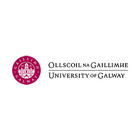- News and articles
- Find usIDP AustraliaIDP BahrainIDP BangladeshIDP CambodiaIDP CanadaIDP ChinaIDP EgyptIDP GhanaIDP Hong KongIDP IndiaIDP IndonesiaIDP IranIDP JordanIDP KenyaIDP KoreaIDP KuwaitIDP LebanonIDP MalaysiaIDP MauritiusIDP Middle EastIDP NepalIDP New ZealandIDP NigeriaIDP OmanIDP PakistanIDP PhilippinesIDP Saudi ArabiaIDP SingaporeIDP Sri LankaIDP Taiwan, ChinaIDP ThailandIDP TurkeyIDP UAEIDP VietnamIDP Corporate
- Social
- English
- Where we operate
- Courses
- Scholarships
- IELTS
- About IDP
- Student Essentials
- News and articles
- Find us
- Find us
- Find nearest IDP offices
- IDP Australia
- IDP Bahrain
- IDP Bangladesh
- IDP Cambodia
- IDP Canada
- IDP China
- IDP Egypt
- IDP Ghana
- IDP Hong Kong
- IDP India
- IDP Indonesia
- IDP Iran
- IDP Jordan
- IDP Kenya
- IDP Korea
- IDP Kuwait
- IDP Lebanon
- IDP Malaysia
- IDP Mauritius
- IDP Middle East
- IDP Nepal
- IDP New Zealand
- IDP Nigeria
- IDP Oman
- IDP Pakistan
- IDP Philippines
- IDP Saudi Arabia
- IDP Singapore
- IDP Sri Lanka
- IDP Taiwan, China
- IDP Thailand
- IDP Turkey
- IDP UAE
- IDP Vietnam
- IDP Corporate
- Social
- Language Switcher
- IDP Education /
- Colleges and Universities /
- Ireland /
- University of Galway /
- LLM International Criminal Law


Location
Ireland
Qualification
Masters Degree (Taught)
Fees
EUR19000
(2025)
Duration
1 Year(s)
Next intake
08 September 2025
Entry Score
6.5
IELTSCourse info
Course highlights:
The Irish Centre for Human Rights is one the world's premier university-based institutions for the study and promotion of human rights.
Expert Lecturers deliver programme modules. Our academics are internationally recognised scholars with world-class expertise and impact in the field of international criminal law. Distinguished visitors to the Centre for Human Rights have included Judge Carmel Agius, Senator Robert Badinter, Judge Maureen Harding Clark, Richard Goldstone, President Philippe Kirsch, Judge Theodor Meron, Judge Navanethem Pillay and Judge Kimberly Prost.
Field trip to the International Criminal Court in The Hague.
A summer school on the International Criminal Court is run annually and students have the opportunity to attend.
Career Opportunities
Students who have undertaken and successfully completed the programme tend to fall into one of four categories:
those who work within the United Nations (UN) or with UN-affiliated organisations,
those who work in NGO and quasi-NGOs both human rights and development,
those who work in academic institutions or pursue a PhD/JD,
those who work in diplomatic or government-based work (in the human rights division of the Department of Foreign Affairs, for example).
Within these umbrella categories, students have pursued work in the ICC, Amnesty International, Human Rights Watch, ICRC, the UN system (Geneva and New York), locally-based NGOs, trade and health organisations, as well as domestic law firm work that draws on international legal mechanisms and research-based work in university research centres, to name but a few.
- Scholarships View all scholarships
- Internships
Entry requirements for University of Galway
IELTS - 6.5 overall, no less than 5.5 in any one component.
TOEFL IBT - 88 overall, 7-11 Listening, 16-17 Speaking, 18-20 Writing, 8-12 Reading
Application Deadline
The application deadline isn't available Speak to an IDP counsellor for more detailed information
Further information
If you aren't eligible for the above entry requirements, you might ant to explore pathway options at University of Galway. If you want to find out more, speak to our counsellors.
THE World Ranking
351st / 1250
THE World RankingWhat our students think
We’ve haven’t received any reviews for this institution yet.
Recommended for you
- THE World Ranking:201
- Masters Degree (Taught)
- Belfield , Ireland
- Next intake:09/2025
- Entry Score: IELTS 6.5
- EUR22600 (2025)
- THE World Ranking:201
- Masters Degree (Taught)
- Belfield , Ireland
- Next intake:09/2025
- Entry Score: IELTS 6.5
- EUR22600 (2025)
- THE World Ranking:201
- Masters Degree (Taught)
- Belfield , Ireland
- Next intake:09/2025
- Entry Score: IELTS 6.5
- EUR22600 (2025)
- THE World Ranking:201
- Masters Degree (Taught)
- Belfield , Ireland
- Next intake:09/2025
- Entry Score: IELTS 6.5
- EUR22600 (2025)
- THE World Ranking:201
- Masters Degree (Taught)
- Belfield , Ireland
- Next intake:09/2025
- Entry Score: IELTS 6.5
- EUR22600 (2025)
- THE World Ranking:201
- Masters Degree (Taught)
- Belfield , Ireland
- Next intake:09/2025
- Entry Score: IELTS 6.5
- EUR22600 (2025)
- THE World Ranking:201
- Masters Degree (Taught)
- Belfield , Ireland
- Next intake:09/2025
- Entry Score: IELTS 6.5
- EUR22600 (2025)
- THE World Ranking:201
- Masters Degree (Taught)
- Belfield , Ireland
- Next intake:09/2025
- Entry Score: IELTS 6.5
- EUR22600 (2025)
Your action plan
Step 1
Shortlist your courses
Choose the best three courses you’re most likely to pursue.
Step 2
Check your eligibility
Get an instant in-principle offer for courses with the IDP FastLane tag.
Step 3
Apply through IDP Live
Fill out the form once and use it to apply to multiple courses.
How does IDP FastLane work?
With the FastLane 'Offer in Principle', you'll know in minutes if you'll be accepted!
Select an institution and course
Create your academic profile
Submit your application for an 'Offer in Principle'
Your chosen institution(s) will send you a decision in minutes!
Get ready to apply with an expert counsellor




